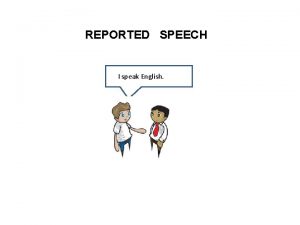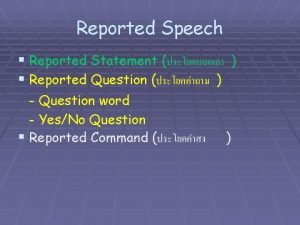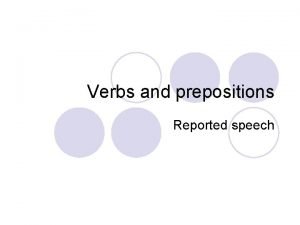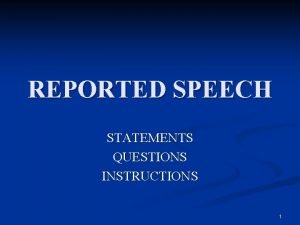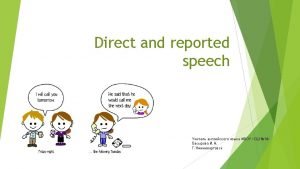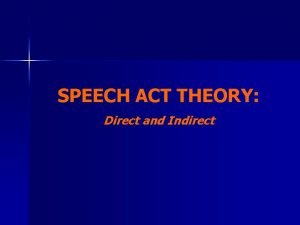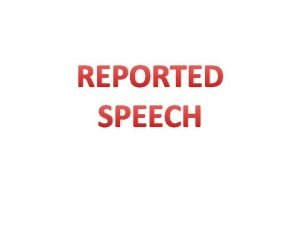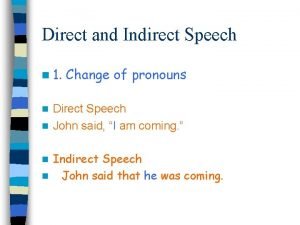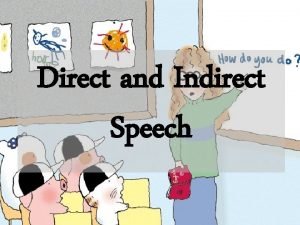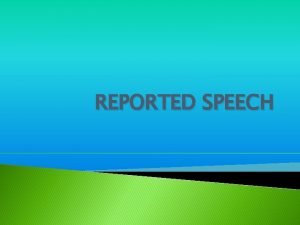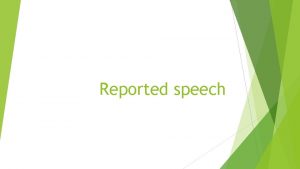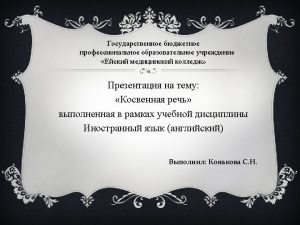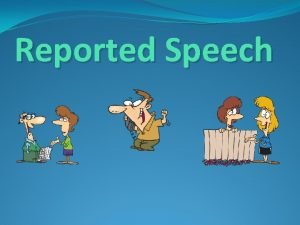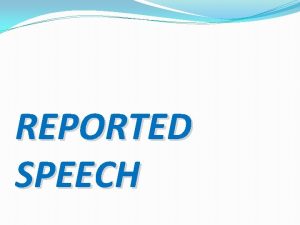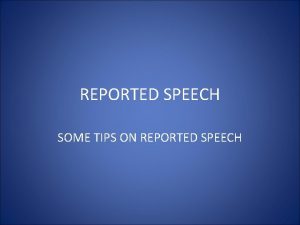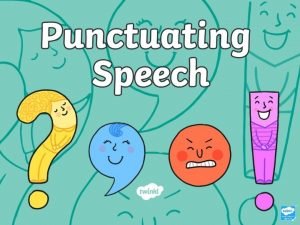REPORTED SPEECH I speak English I speak English









- Slides: 9

REPORTED SPEECH I speak English.

“I speak English. ” He says that he speaks English. He said that he spoke English. direct speech reported speech (no backshift) reported speech (backshift)

Statements 1) If the sentence starts in the present, there is no backshift of tenses in Reported speech. Example: Susan, "I work in an office. " Susan in an office. says that she works 2) If the sentence starts in the past, there is often backshift of tenses in Reported speech. Example: Susan, "I work in an office. " Susan in an office. said that she worked

When transforming statements, check whether you have to change: 1. Pronouns 2. present tense verbs (3 rd person singular) 3. place and time expressions 4. tenses (backshift)

Backshift of tenses from to Simple Present Simple Past Present Perfect Past Perfect will would The verbs could, should, would, might, must, needn’t, ought to, used to do not normally change. Example: He said, “She might be right. ” – He said that she might be right.

Shifting of expressions of time Peter: "I worked in the garden yesterday. " Peter said that he had worked in the garden the day before. this (evening) that (evening) today/this day that day these (days) those (days) now then (a week) ago (a week) before last weekend the weekend before / the previous weekend here there next (week) the following (week) tomorrow the next/following day

Reported questions If you put a question into Reported speech there are some steps which are the same like in statements: changing of the person, backshift of tenses, changing of expressions of time. In Reported speech there is no question anymore, the sentence becomes a statement. That's why the word order is: subject - verb Question without question words (yes/no questions): Peter, "Do you play football? " - Peter asked me whether (if) I played football. Question with question words: Peter, "When do you play football? " - Peter asked me when I played football.

Reported commands The form is mostly: form of to tell +person + to + infinitive. Affirmative commands Father, "Do your homework. ” Father told me to do my homework. Negative commands Teacher, "Don't talk to your neighbour. " The teacher told me not to talk to my neighbour.

Requests The basic rule for requests is: introductory clause + ‚to‘ + infinite verb. Example: “Say hello to your mum. “ She asked me to say hello to my mum. Advise expressions with must, should and ought are usually reported using advise / urge. Example: “You must read that book. “ He advised / urged me to read that book. The expression let’s is usually reported using suggest. In this case, there are various possibilities for reported speech: gerund or statement with should. Example: “Let’s go to the cinema. “ He suggested going to the cinema. He suggested that we should go. to the cinema.
 “i speak english” he said that he ……english
“i speak english” he said that he ……english Reported speech matching exercises
Reported speech matching exercises Reported speech prepositions
Reported speech prepositions Ann says i'm tired
Ann says i'm tired Reported speech present perfect
Reported speech present perfect Sentence and its types
Sentence and its types Simple present direct speech
Simple present direct speech Reported speech exercises doc
Reported speech exercises doc Changing direct speech to reported speech
Changing direct speech to reported speech Adverbs in reported speech
Adverbs in reported speech
